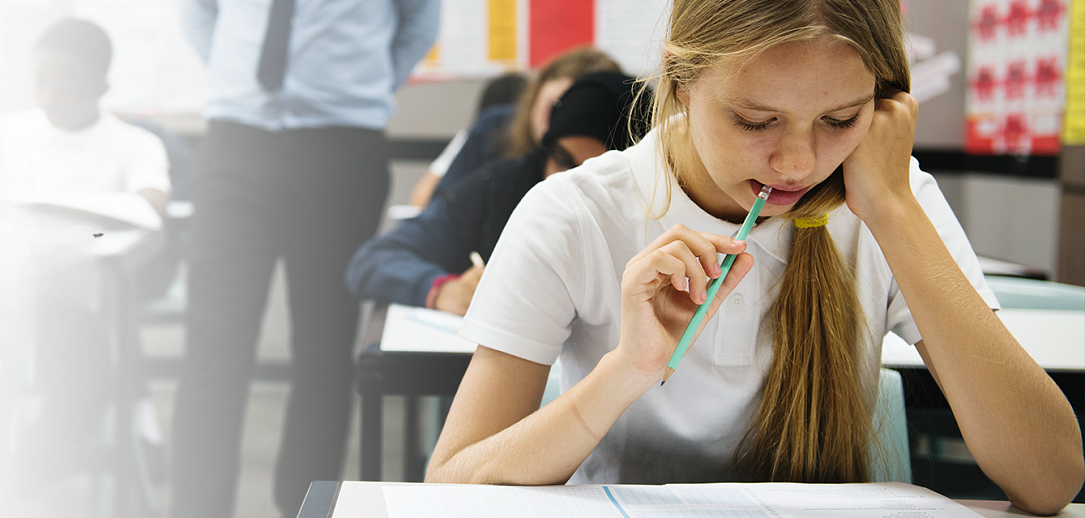PISA 2022: Could online learning bridge the gap in global education challenges?



However, the studies show that moving to an online environment was not the biggest risk factor for students, as one would expect.
PISA, or The Programme for International Student Assessment, is a study conducted globally by the Organisation for Economic Co-operation and Development (OECD) in member and non-member nations.
The study, initially launched in 2000, is a catalyst for testing 15-year-olds’ skills and academic levels in reading, mathematics, and science and the last test was conducted in 2018 before COVID-19 happened.
Compared to the last test scores from 2018, the mean performance fell by 10 score points in reading and by almost 15 score points in maths, according to the OECD’s report.
The 2022 PISA results show that Education is done differently from country to country.
If, for some countries, the period of COVID-19 didn’t signify a roadblock in education, others seem to have been affected by the transition to digital learning.
Key findings from PISA 2022 - according to the PISA Report Summary
Struggles in specific areas
The studies show that children who have not been going to school for longer periods have been scoring lower on PISA tests than those who returned to school quicker during the COVID-19 period.
This should not mean that digitalisation is not the way, but the fact that we might not prepared to tackle it responsibly or accordingly.
The report of the results also notes the fact that there were significant differences in test results between students who reported receiving extra support from teachers during the COVID-19 period and those who had to learn autonomously most of the time.
The PISA report highlighted some challenges that the current education system faces worldwide:
When it comes to the topic of wellbeing in schools, some countries are doing a great job in turning schools into safe spaces and focusing on their students’ wellbeing.
However, this is not the case everywhere, and there’s still much to improve.
This is exactly why online high schools like Spark School are fighting the great fight of making education universally accessible for students no matter where they are in the world. Because everyone should have a chance to get a quality education.
Online education offers crucial advantages in addressing educational disparities:
1. Accessibility: Reaching remote and underserved areas
Online platforms like MySpark can bridge gaps by providing access to education for remote and underserved areas, as highlighted by the results revealed by the PISA 2022 testing.
2. Customised Learning: Tailoring education to individual needs
Tailored learning experiences cater to individual needs and learning paces, ensuring inclusive education regardless of diverse learning abilities.
At Spark, students can study what they want, when they want to, from anywhere in the world. Because they understand the need for different types of learning and lifestyles.
3. Quality Resources: Access to updated, high-quality educational materials
Access to regularly updated, high-quality educational materials enriches learning experiences, surpassing limitations faced by traditional education systems in resource availability.
4. Global Collaboration: Breaking down geographical barriers to learning and collaboration
Geographical barriers are dismantled as online education enables global interactions and cultural exchange, fostering global competencies.
Education is and will always be in a constant state of change.
In a world where academic stability is not always granted automatically, online schools like Spark want to be the beacon of hope for ambitious students needing quality education.
With technology still on the rise, we should be mindful of the changes happening in our society, and we should learn to trust and consider technology an ally in our lives.
Lots of courses are freely available on the internet, and for other things like digital literacy, we should learn to be our own teachers.
After all, autonomous learning was one of the weak points that the PISA 2022 reported in students.
No matter if we are enrolled in a traditional schooling system or not, there are always additional resources available to us - thanks to digitalisation.
The Spark Cambridge Academic courses are a great resource for students enrolled in traditional education systems to enhance their learning experiences and be better prepared for University Admission.
And for students dreaming of flexibility and a curriculum tailored to their needs, the Spark High School experience might be the best possible fit.
And just like that, learning can happen anytime, from anywhere in the world.
*This is Partner Content.